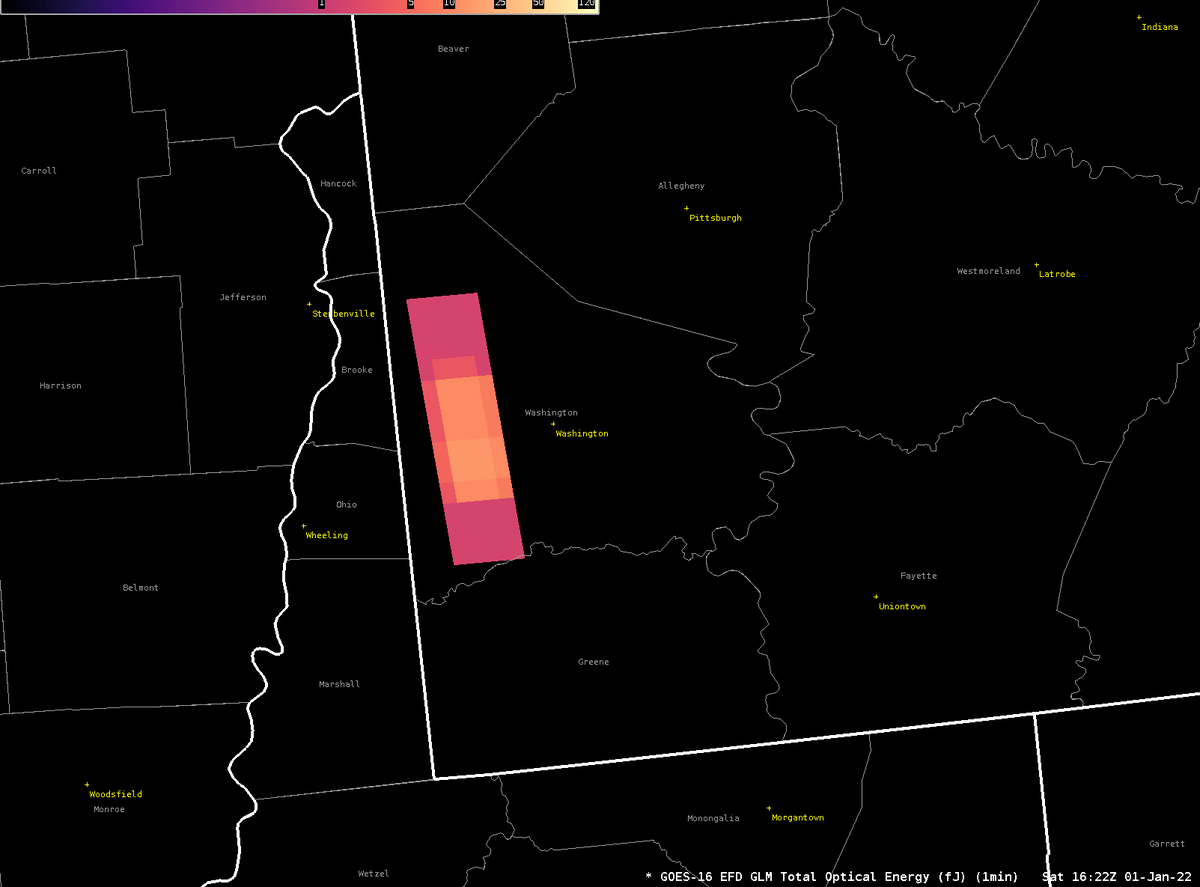Exploding meteor 'booms' over Pennsylvania on New Year's Day

A meteor hurtling through Earth's atmosphere exploded over Pittsburgh, Pennsylvania on New Year's Day (Jan. 1).
Just before 11:30 a.m. EST (1630 GMT) on Jan. 1, people in Pittsburgh heard what sounded like a loud "boom" outside. Reports described windows rattling and objects shaking in their homes, according to CBS Pittsburgh. The sudden blast surprised those living in the Pittsburgh area as the meteor broke up in the cloudy morning sky.
The loud bang was actually a bolide, a term for a large meteor that explodes in our atmosphere, burst apart with the energy of 30 tons of TNT detonating, according to NASA's Meteor Watch.
Related: Stunning pictures of the Geminid meteor shower
The doomed meteor, which was estimated to measure about 3 feet (0.9 meters) across with a mass close to 1,000 pounds (453 kilograms), was likely traveling around 45,000 mph (72,420 kph) as it broke apart in Earth's atmosphere, the NASA social media site said.
NASA's Meteor Watch added that if it were not cloudy when the meteor burned up in our atmosphere, the event would have been about 100 times as bright as the full moon and visible in the daylight.
Through the clouds, however, some say it appeared as a "little purple flash," the National Oceanic and Atmospheric Administration (NOAA) tweeted.
Get the Space.com Newsletter
Breaking space news, the latest updates on rocket launches, skywatching events and more!
See that little purple flash near Pittsburgh? Although it was picked up by #GOESEast's Geostationary Lightning Mapper (#GLM), it was likely a #meteor that exploded overhead on Jan. 1 just before 11:30 a.m. local time. Some residents even reported hearing an associated "boom." pic.twitter.com/2z4iGCWHiRJanuary 3, 2022
NOAA added that the event was detected by the Geostationary Lightning Mapper (GLM) on the GOES-East Earth-monitoring satellite.
This meteoric event follows just a few months after a fireball was spotted in the skies over West Virginia, on Sept. 17, 2021. The event, which was later determined to be a meteor burning up in the atmosphere, also caused a loud "boom" and shook the ground, causing some to suspect a possible earthquake.
"Fireballs" have also been reported by skywatchers witnessing what was actually rocket launches. Skywatchers all along the Eastern coast in the U.S. reported hundreds of sightings following a November SpaceX launch that lofted its Crew-3 mission to the International Space Station.
Email Chelsea Gohd at cgohd@space.com or follow her on Twitter @chelsea_gohd. Follow us on Twitter @Spacedotcom and on Facebook.
Join our Space Forums to keep talking space on the latest missions, night sky and more! And if you have a news tip, correction or comment, let us know at: community@space.com.

Chelsea “Foxanne” Gohd joined Space.com in 2018 and is now a Senior Writer, writing about everything from climate change to planetary science and human spaceflight in both articles and on-camera in videos. With a degree in Public Health and biological sciences, Chelsea has written and worked for institutions including the American Museum of Natural History, Scientific American, Discover Magazine Blog, Astronomy Magazine and Live Science. When not writing, editing or filming something space-y, Chelsea "Foxanne" Gohd is writing music and performing as Foxanne, even launching a song to space in 2021 with Inspiration4. You can follow her on Twitter @chelsea_gohd and @foxannemusic.









